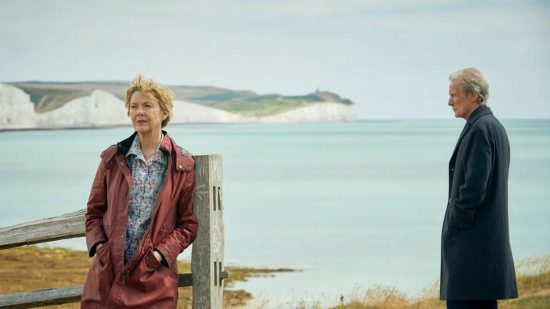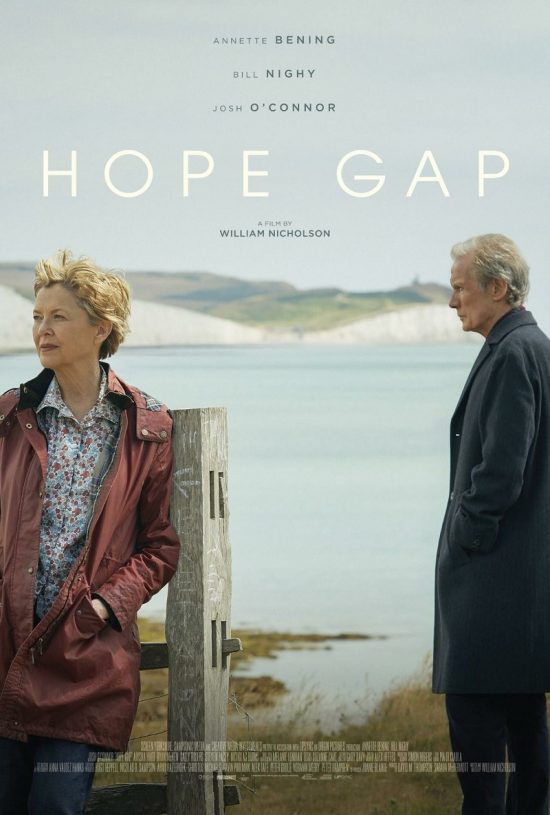Review: Hope Gap – “A dialogue-heavy three-hander”
Marriage in crisis remains fertile ground for filmmakers. Like Noah Baumbauch, whose personal experience of divorce in childhood and then later as one half of a married couple, writer-director William Nicholson wrote the story of his parents’ split. But, Hope Gap doesn’t have the emotional pull of either of Baumbauch’s divorce dramas.
Nicholson adapted the film from his Tony-nominated play The Retreat from Moscow. Perhaps it’s a story better suited to the stage. It’s essentially a dialogue-heavy three-hander between an older married couple Grace (Annette Bening) and Edward (a subdued Bill Nighy), with their son Jaimie (Josh O’Connor) becoming a reluctant mediator between them.
The film is set in Seaford, and the rugged cliffs of the Sussex coast do look stunning, but the drama and hint of choppy waters doesn’t quite translate to the indoor scenes.
The first act sets a melancholy tone. After three decades together sometimes people just run out of things to say to one another. Those smaller moments are a window into the relationship dynamic that is largely told through expository dialogue. At the start, Hope Gap hints at the kind of intimate study of a relationship as portrayed in Andrew Haigh’s 45 years. But it never quite delivers.
Despite the autofiction, all the characters seem a little thinly drawn. We get more of a sense of who Grace is, and her internal conflicts than Edward, particularly in the fallout of the separation. She’s a bohemian looking poet and a devout Catholic. He’s a disgruntled, buttoned-up school teacher having an affair.
A scene where Edward clumsily mumbles his desire to leave the marriage while making his wife a cup of tea is a study in a British awkwardness. It’s also one of the few moments where the relationship really feels real, rather than theatrical.
The moments where Jamie is forced to visit his parents individually also offer up some more interesting commentary on how our parents shape us. Watching a painfully stiff hug between Edward and Jamie captures more about male communication than a lot of film’s verbal exchanges do.
It’s easier to see the changes in Grace through Annette Bening’s performance too. Edward remains mostly the same throughout – stoic, awkward, mostly concerned about not appearing to be the bad guy. Grace is more vulnerable, close-ups on her face and the way she cocoons herself in her living room chair tells us how much damage the end of the marriage has done.
Like coastal erosion, people wear each other down and move apart slowly, over time. It’s not always a seismic event. That appears to be the film’s message, yet a detached and mannered delivery feels more like treading water.
Hope Gap is in UK cinemas and Curzon Home Cinema on Friday 28th August 2020.












